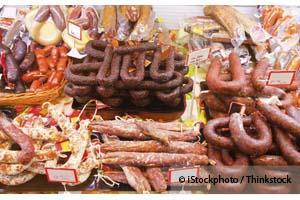Story at-a-glance
- More than 3,000 food additives -- preservatives, flavorings, colors and other ingredients -- are added to foods in the United States. Many of these additives are banned in other countries
- Ingredients banned in other countries yet allowed in the US include various food dyes, the fat substitute Olestra, brominated vegetable oil, potassium bromate (aka brominanted flour), Azodicarbonamide, BHA, BHT, rBGH, rBST, and arsenic
- Russia has announced a ban on virtually all U.S. meat and meat product imports, effective February 11, due to the feed additive ractopamine in the meats
- In the US, ditching processed foods is your best bet to avoid potentially harmful food additives. If you live in Europe you may have more options, as you may be able to find processed foods that do not contain any synthetic additives at all
(NaturalNews) Just when you thought eating fish was iffy enough due to Fukushima radiation, the gulf oil spill, mercury and other toxins found in fish, one of the largest seafood fraud investigations in the world to date has found that 59 percent of the tuna Americans consume is not really tuna. Worse still, most of the fake tuna was found to actually be a fish known for causing gastrointestinal problems.
The non-profit ocean protection group Oceana collected more than 1,200 samples from 674 retail outlets in 21 states from 2010 to 2012 to determine if they were honestly labeled. DNA testing found that one-third of the 1,215 seafood samples were mislabeled, according to U.S. Food and Drug Administration (FDA) guidelines...


No comments:
Post a Comment